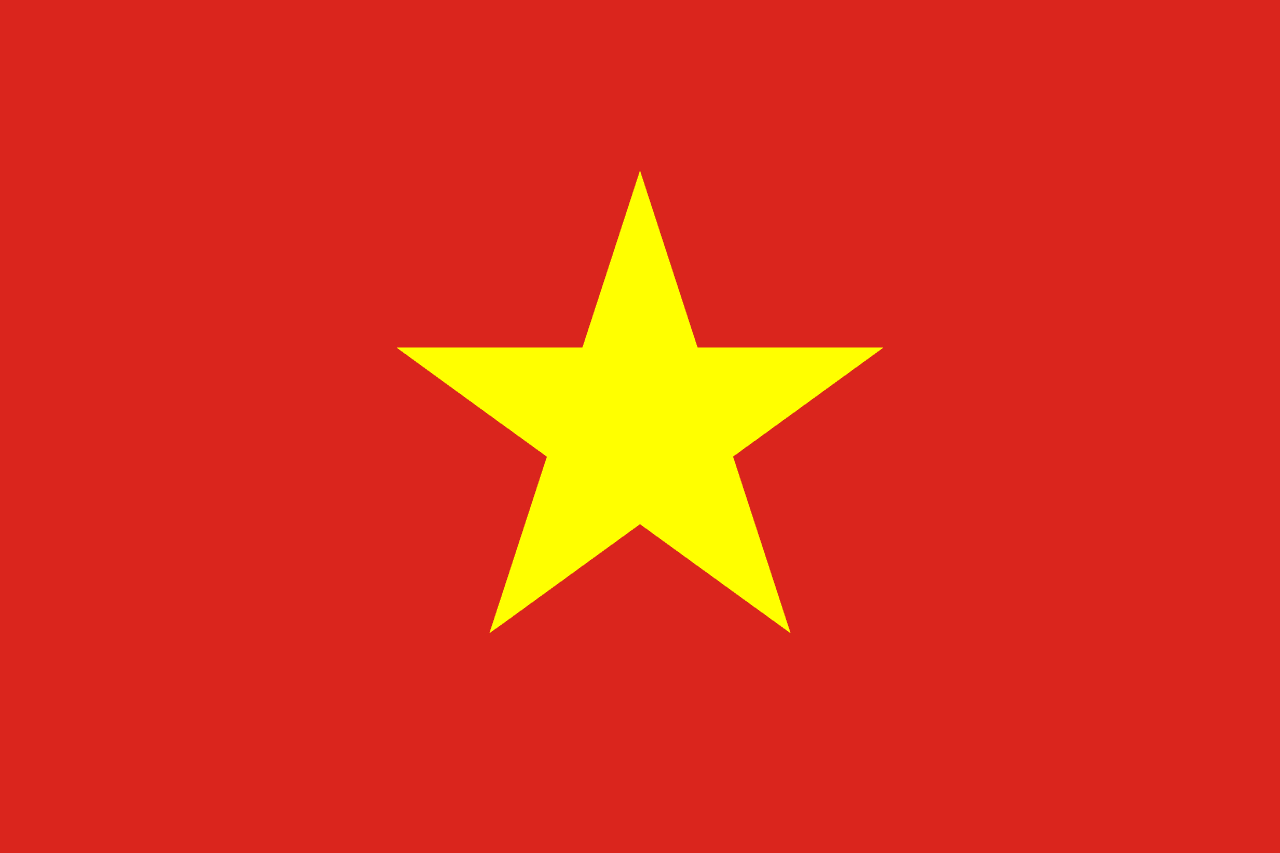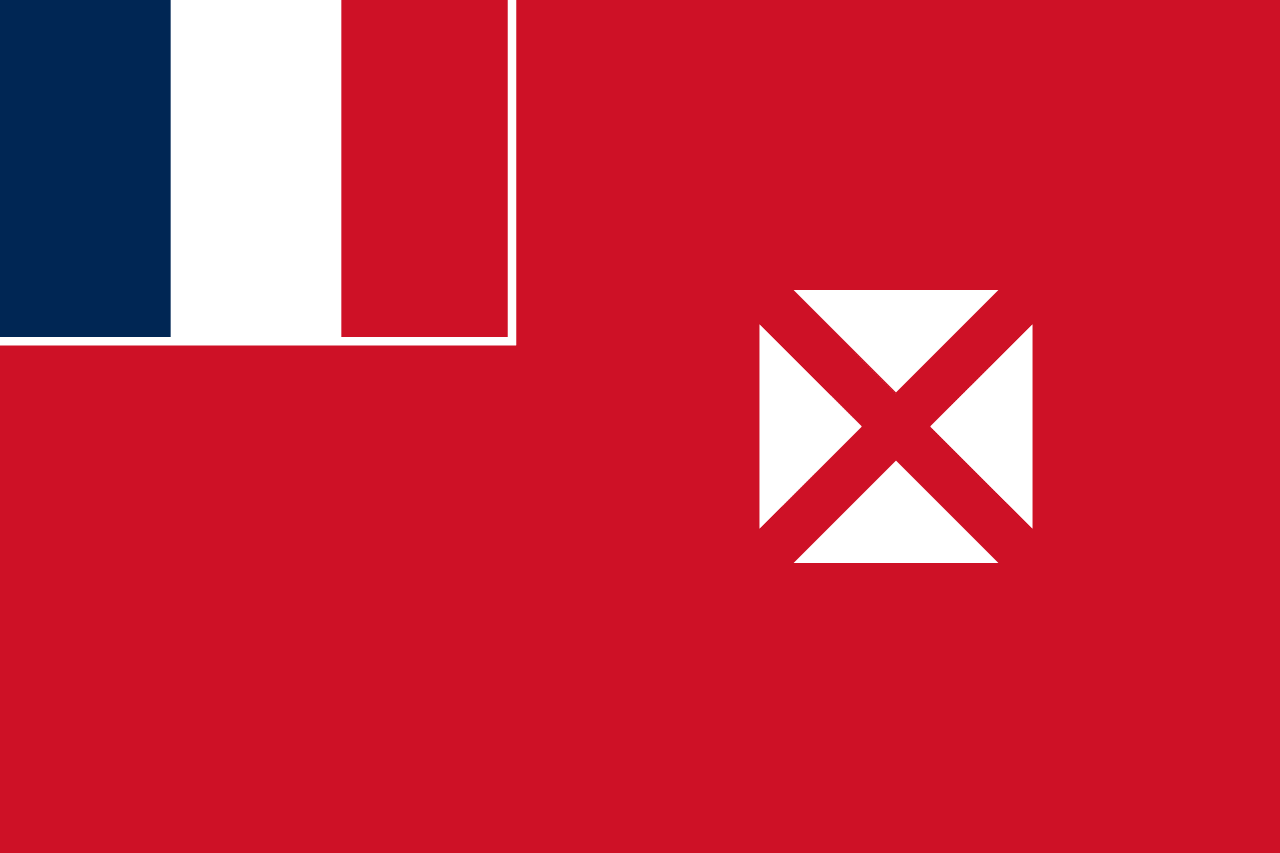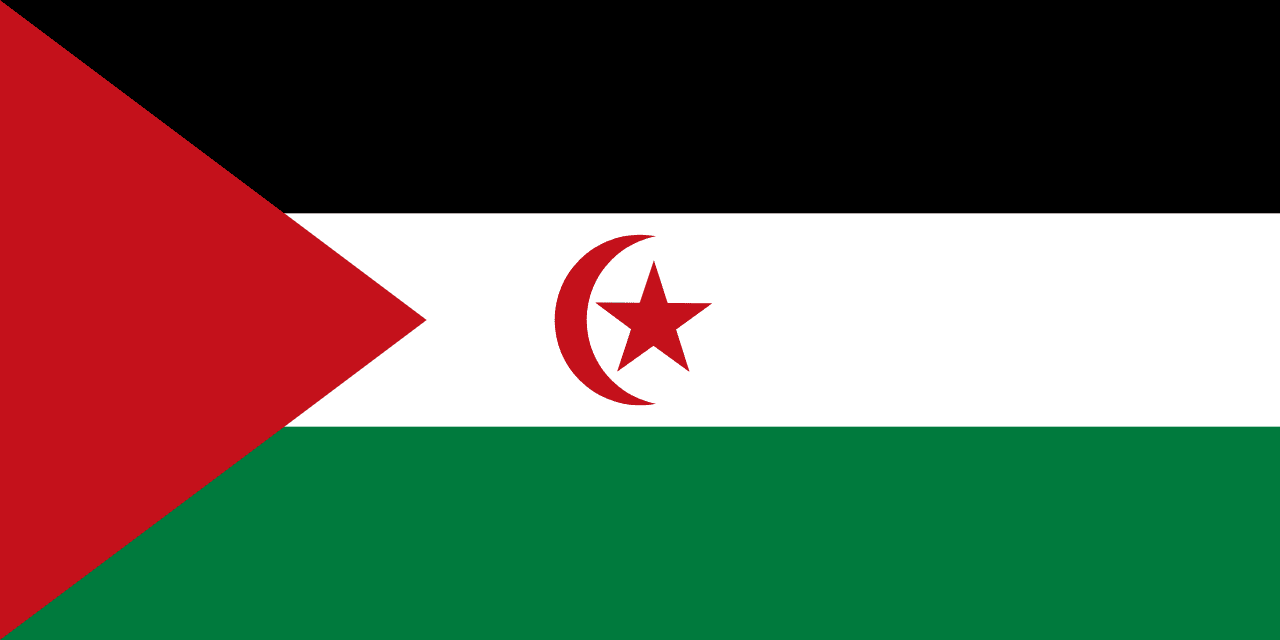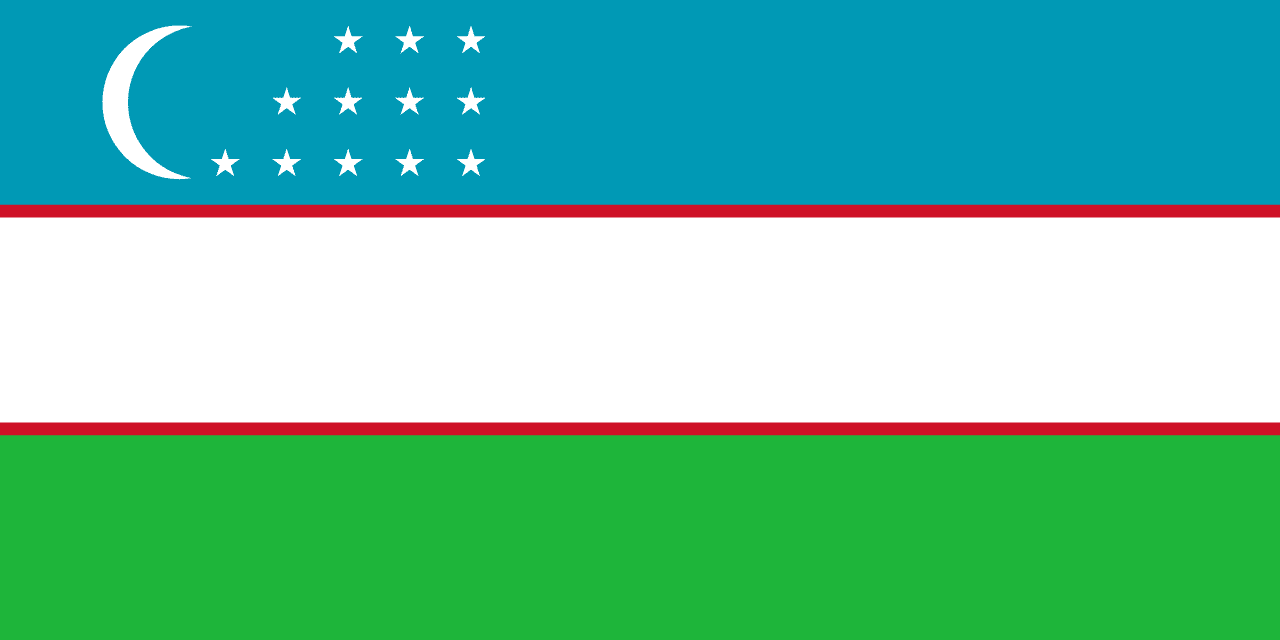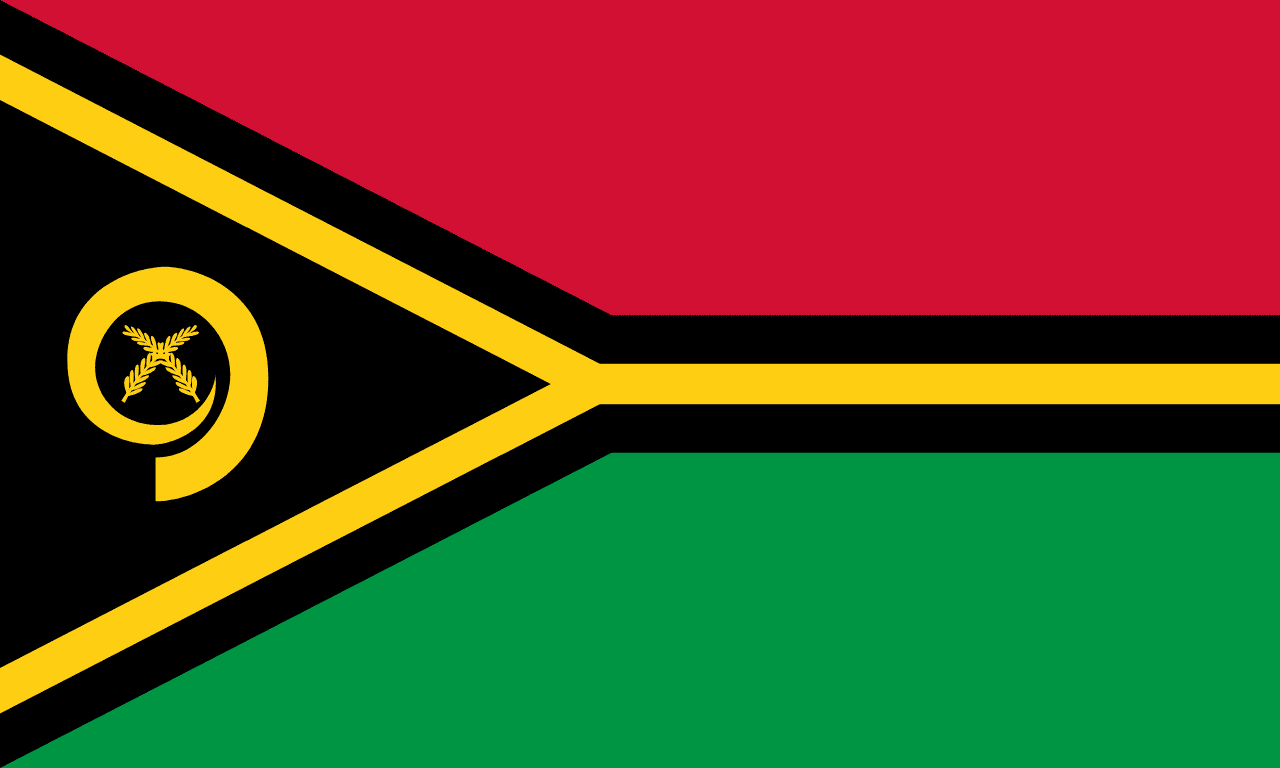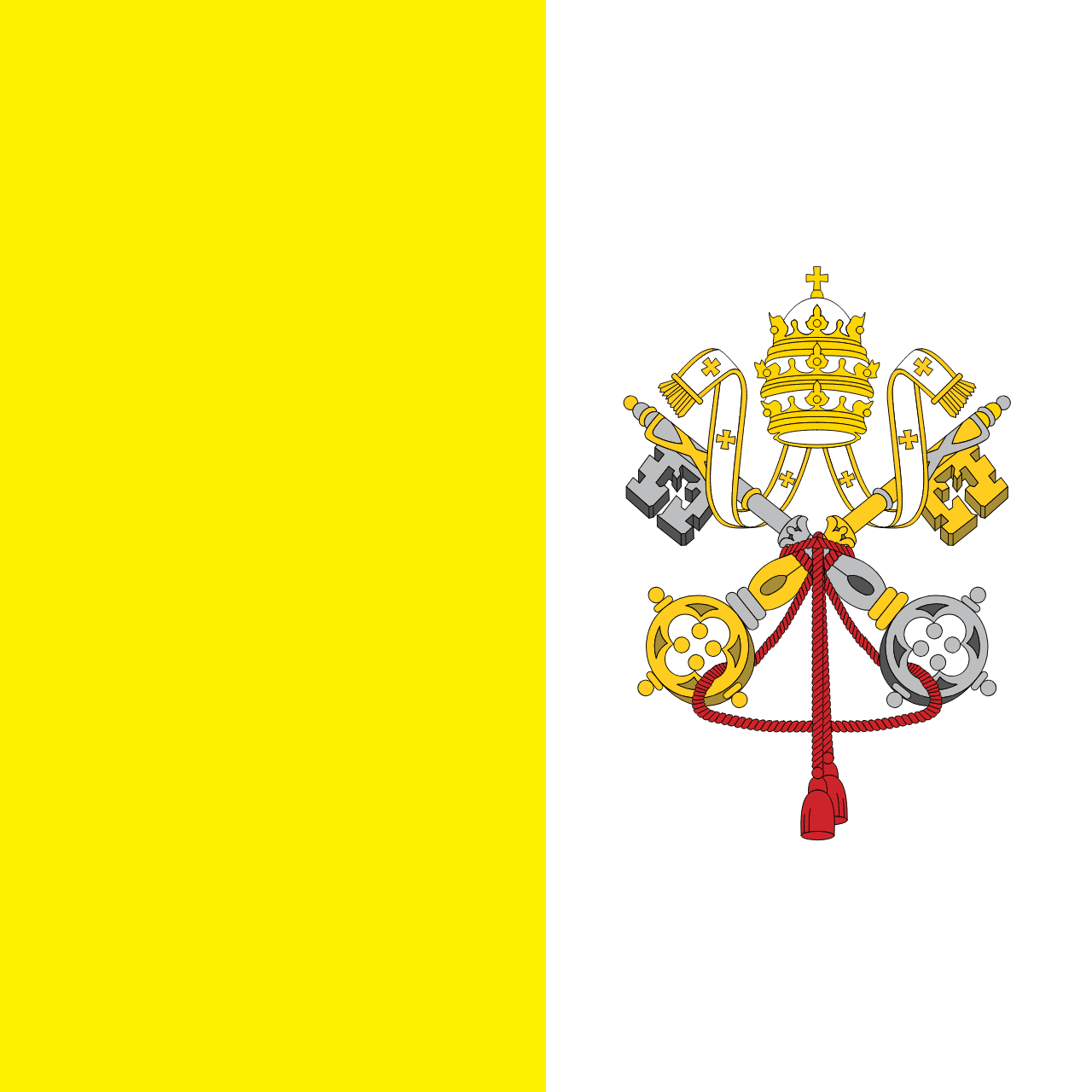The flag of Venezuela is a vibrant tricolor banner consisting of three equal horizontal stripes: yellow at the top, blue in the middle, and red at the bottom. Within the blue stripe, an arc of eight white five-pointed stars stands out prominently. This design beautifully encapsulates Venezuela's rich history, natural wealth, and aspirations for unity and progress.
Venezuela information
| National Flag Day | July 5th |
| Sovereign state | Yes |
| Official name | Bolivarian Republic of Venezuela |
| Capital | Caracas |
| Population | 34,653,238 |
| Area | 916,445 km² |
| Currency | Venezuelan bolívar (VEF) |
| Language | Spanish |
| Continent | South America |
| Region | Latin America |
| Subregion | North America |
| Borders | Colombia, Guyana, Brazil |
| Timezone | Venezuela Time (VET) UTC-4:30 |
| Calling code | +58 |
| Top-level domain | .ve |
History of the Venezuelan Flag
 The current version of the Venezuelan flag was officially adopted on March 12, 2006. However, its origins date back to 1811 when Venezuela declared independence from Spain. The original design, created by Francisco de Miranda, one of Venezuela's founding fathers, featured only three stars. Over time, the flag underwent several modifications, with stars being added or removed to reflect political changes. The most significant recent change came in 2006 when an eighth star was added to honor Simón Bolívar's decree of 1817 and to represent the Guayana Province.
The current version of the Venezuelan flag was officially adopted on March 12, 2006. However, its origins date back to 1811 when Venezuela declared independence from Spain. The original design, created by Francisco de Miranda, one of Venezuela's founding fathers, featured only three stars. Over time, the flag underwent several modifications, with stars being added or removed to reflect political changes. The most significant recent change came in 2006 when an eighth star was added to honor Simón Bolívar's decree of 1817 and to represent the Guayana Province.
Symbolism and Design of the Venezuelan Flag
Each element of the Venezuelan flag carries deep symbolic meaning:
- The yellow stripe represents the wealth of the land, including Venezuela's vast gold deposits and other natural resources.
- The blue stripe symbolizes the Caribbean Sea and the Atlantic Ocean that border Venezuela, as well as the country's courage and independence from Spain.
- The red stripe stands for the blood shed by patriots during the struggle for independence.
- The arc of eight stars represents the eight original provinces that united in the Venezuelan War of Independence: Caracas, Cumaná, Barcelona, Barinas, Margarita, Mérida, Trujillo, and Guayana.
- The stars are arranged in an arc to symbolize the unity and equality of all states.
Usage and Significance of the Venezuelan Flag
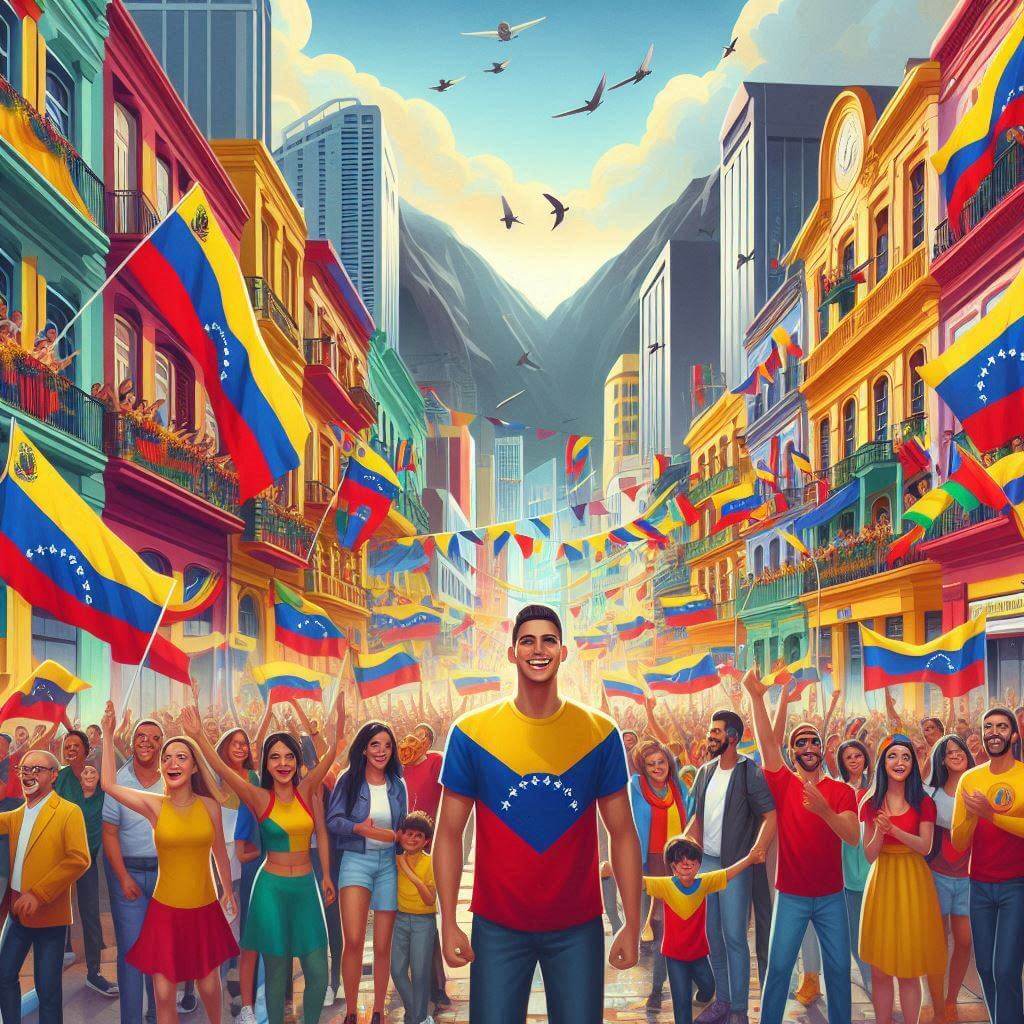 The Venezuelan flag is a powerful symbol of national identity and pride. It is prominently displayed during national holidays, such as Independence Day on July 5th, and at government buildings, schools, and public spaces. The flag is also an important element in political and cultural events, serving as a rallying point for national unity. Venezuelan athletes proudly carry the flag at international sporting events, showcasing their national colors to the world.
The Venezuelan flag is a powerful symbol of national identity and pride. It is prominently displayed during national holidays, such as Independence Day on July 5th, and at government buildings, schools, and public spaces. The flag is also an important element in political and cultural events, serving as a rallying point for national unity. Venezuelan athletes proudly carry the flag at international sporting events, showcasing their national colors to the world.
Interesting Facts About the Venezuelan Flag
- Venezuela is renowned for its diverse landscapes, including the Andes mountains, the Amazon rainforest, and the world's highest waterfall, Angel Falls.
- The flag's design not only reflects the country's natural resources and independence history but also its geographical diversity and cultural richness.
- The addition of the eighth star in 2006 sparked controversy, as some viewed it as a political move rather than a historical homage.
- Venezuela shares the same color scheme (yellow, blue, and red) with Colombia and Ecuador, reflecting their shared history as part of Gran Colombia after independence from Spain.
- The Venezuelan coat of arms, which appears on some versions of the flag for official use, includes symbols of abundance such as wheat sheaves, cornucopias, and a white horse - further emphasizing the country's natural wealth.
- The flag is sometimes referred to as "La Tricolor" (The Tricolor) by Venezuelans, highlighting the significance of its three bold colors.
- In Venezuelan flag etiquette, the yellow stripe must always be at the top when displayed horizontally, and to the left when hung vertically.
